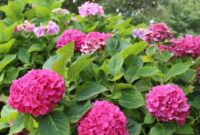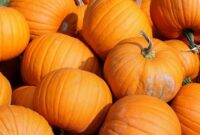Oregano is a perennial herb with rose-purple or white flowers and a taste reminiscent of thyme. Here’s how to grow oregano plants in your garden—plus, delicious recipes using oregano.
Oregano’s taste is zesty and strong and is commonly used in Italian dishes. It is a hardy plant and makes for a good ground cover.
Planting
- Oregano loves the sun, so ensure that your placement has full, strong sun for strong flavor. Some folks plant later in the season for assured warm weather.
- However, for a head start, plant the seeds/cuttings 6 to 10 weeks before the last spring frost. (See local frost dates.)
- Oregano can easily be started from seeds, though you can also use cuttings from an established plant.
- Plant the seeds/cuttings in well-drained soil anytime after the last spring frost. The soil should be around 70ºF.
- For thin plants, plant 8 to 10 inches apart. The plants will grow 1 to 2 feet tall and spread about 18 inches.
- Oregano makes a good companion plant for any vegetable in the garden.
Growing
- Allow oregano plants to grow to about 4 inches tall and then pinch or trim lightly to encourage a denser and bushier plant.
- Regular trimming will not only cause the plant to branch again, but also avoid legginess.
- Oregano doesn’t need quite as much water as most herbs. As the amount of watering depends on many variables, just water when the soil feels dry to the touch. Remember that it’s better to water thoroughly and less often.
- If you have a container, water until the water comes out of the drainage holes in the bottom of the container.
- To ensure the best-quality plants, thin out plants that are 3 or 4 years old in the early spring. Oregano is self-seeding, so the plants will easily grow back.
- You can divide the plants in late spring if you want to put one indoors.
Pests/Diseases
- Root and stem rots
- Aphids
- Spider mites
Recommended Varieties
- Greek oregano (Origanum vulgare var. hirtum) for cooking.
- Common oregano for decoration (its lavender flowers look pretty in the garden and are also used in wreaths).
Harvesting
- Harvest the leaves as you need them. The most flavor-filled leaves are found right before the flowers bloom.
- You can freeze the leaves to use during the winter. Oregano leaves store well and are easily dried. Keep them in an airtight container once dried.
Wit and Wisdom
- Oregano tea relaxes nerves and settles an upset stomach.
- Oregano was once used in many old-fashioned herbal remedies.
- For other greens to use in your cuisine, see the Leafy Greens: Health Benefits page.
- Oregano plants are said to symbolize “substance.” Find out more about plant meanings here.
Recipes
Tomato Herb Bread
Farmers’ Market Grilled Veggie Platter
Slow-Cooker Tomato Sauce
Shrimp in Tomato Sauce with Feta Cheese
Herbed Popovers
Turkey-Stuffed Eggplant
Cooking Notes
Oregano is an extremely useful herb that appears in countless remedies and tastes a bit like thyme. It is great to have in the kitchen, especially when fresh from the garden! Learn about more flavorful kitchen herbs here.
Herbs
Oregano




